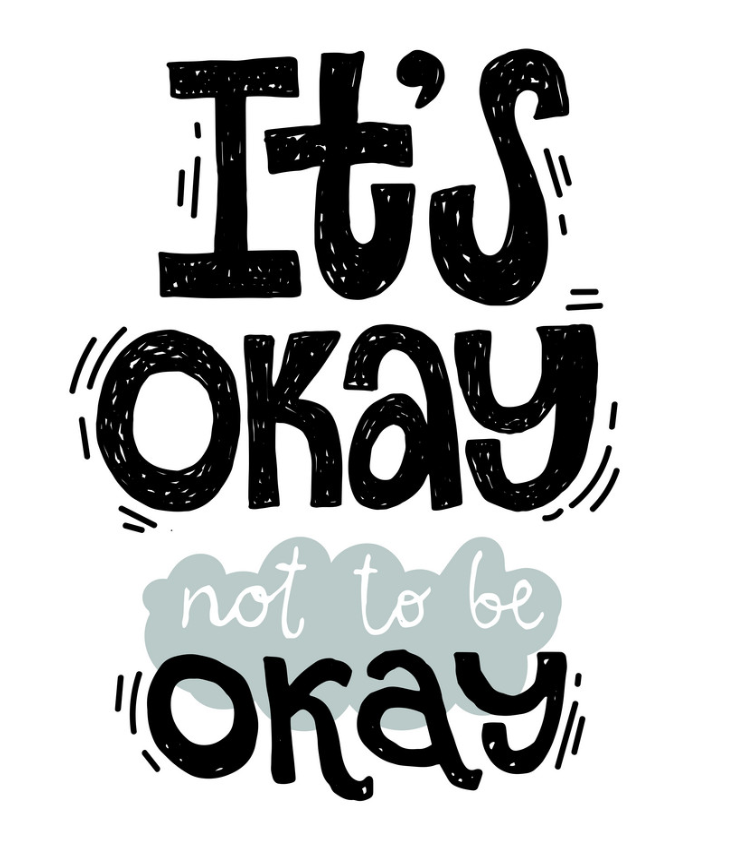The Unique Journey of Mental Health: Mental Health as a Subjective Experience
- Devika Srikanth

- Feb 4, 2023
- 5 min read


We live in a fast-paced society where everyone is so focused on succeeding that we may occasionally lose sight of who we really are. We miss out on checking in with important aspects of life, such as our health, because we are so preoccupied with trying to keep up with the rest of the world.
Many people monitor their physical well-being, but how many of us work on maintaining good mental health? When was the last time we made the decision to stop working entirely and set aside a day to do the things we love the most? As much as we would like to contribute significantly to this society, we must understand that in order to do so, we need to be generally in good health to face any challenges that could come our way. But, do we give enough importance to all the aspects of health?

Physical, emotional, and social well-being are all aspects of health. We often focus on physical and social health but dismiss mental health and its impact on an individual’s overall well-being. The mind plays an integral role in one’s mental well being and it is the hub of our cognitive and emotional processes, such as perception, attention, identification and expression of emotions! An individual is said to be mentally well when, for example, they can set and achieve their goals or manage their emotions and express it in a socially appropriate manner.
Mental health is determined by many factors:
The Environment - Unfavourable environmental conditions, such as lack of basic needs (sleep, food, water) can harm psychological well-being. For example, if a child is subjected to an unpleasant and toxic environment, be it at home or school, or even the kind of friends a child makes and how one stays connected, he/she may experience mental health concerns.
Biology - Having a personal or family history of mental health concerns can also impact someone’s current state of well-being. For example, if someone in the family suffered from a mental health issue, say depression, it could increase the likelihood of someone else suffering from depression in the family.
Adverse Childhood Experiences - a child who experienced physical abuse, sexual assault, emotional abuse, or neglect while growing up is more likely to have significant mental and emotional anguish. For example, growing up in a chaotic household, and witnessing only persistent discrimination can lead to stress in the growing years and have an impact in the later years of life.
Societal Problems - Social factors such as poverty and discrimination are linked to frequent and often prolonged episodes of unemployment, rejection from rightful presence in social spaces, stressful and violent environments, low and inconsistent parental warmth and investment etc,. These variables have been identified as contributors to mental health concerns such as depression and anxiety, amongst others. Additionally, poverty might bring with it a range of constraints such as lack of financial resources to access mental health support, limited social support due to mental health stigma in the community, difficulty accessing mental health care because of dearth of professionals in the communities, etc.
While conversations on these factors have been discussed across forums and mental health awareness is being highlighted as the need of the hour, it still continues to carry a great deal of stigma in many fragments of society. So what are some types of stigma around us?
Mental Health and Stigma

There are three common types of stigma:
Self-stigma: The negative approach of an individual towards his/her own mental illness,
Public stigma: The negative approach of the public towards an individual suffering from a mental health illness or mental health in general,
Professional stigma: The working professionals in the field hold discriminated views about their patients suffering from mental health illnesses.

While these stigmas have existed for eons and have clouded peoples’ understanding and prioritisation of mental health but also limited, we can get rid of the stigmas associated with mental health by raising awareness. For this reason, it's critical that we applaud successful mental health initiatives and try to remove any barriers standing in the way of addressing mental health in a constructive, effective manner. As we know, there are multiple stigmas and barriers around us and thus, the obstacles one person faces could be different from what another individual experiences. But, do mental health concerns differ between people too?
Mental Health as a Subjective Experience
For various people, a mental health concern may manifest differently. While some people might be able to talk about it in public, others would choose to keep it to themselves. Someone might find it challenging to hold conversations in social settings, so much so that it can lead them to question themselves, replay the interaction multiple times and engage in negative self-talk. But for another, making casual conversations and building acquaintances might be an easy and natural process. In no way does this imply that the anxiety that a person feels in a social situation is any less of a mental health concern or does not meet the criteria for being one. Individuals at times tend to feel that their issue or problem may not be as big as someone else’s when in reality there is no basis on how we judge a particular problem or issue. The way a person experiences a situation or their mental health cannot be deemed as valid or invalid. No problem can be sized up as huge or tiny, or written off as inconsequential. At the end of the day, everyone faces their own set of challenges, and if they are not addressed, they can persist and further worsen the situation. Every person's feelings, ideas, and worries need to be recognised and acknowledged, and it must be willingly understood that every individual might seek a different kind of support. In today's society, where we are more open about accepting people the way they are, it is important to allow people to genuinely be themselves and express themselves without inhibition, fear of ridicule or judgment, or the perception that their concerns are not as important as those of others. Equal opportunities must be provided for anyone to ask for assistance and be heard. Just like how one shoe size does not fit all, mental health needs may also vary.
While our mental health needs might be different, the importance of maintaining it still holds true for everyone. Creating and maintaining positive relationships with others, being productive at work and home and even being physically healthy requires good mental health. One should give themselves permission to check in on a regular basis and think about how they are feeling. A crucial step in developing a healthy mental health attitude is to ask for assistance or guidance when it is necessary. Reaching out to mental health professionals as well as people in our circle who we trust, finding comfort and safety will help us to not only take care of our mental health on a regular basis but also face any concern with a lot more courage and support.
Please provide your feedback about the blog by clicking here.




Very well researched and written. Is successful in bringing awareness about the issue
Well written blog
So beautifully written!!! And much needed too!! And properly researched!
Very well written blog; by bringing out, different factors affecting mental health, others like stigma and about seeking professional help or help from people in inner circle as required.
Well written post!! Both easy to follow and informative